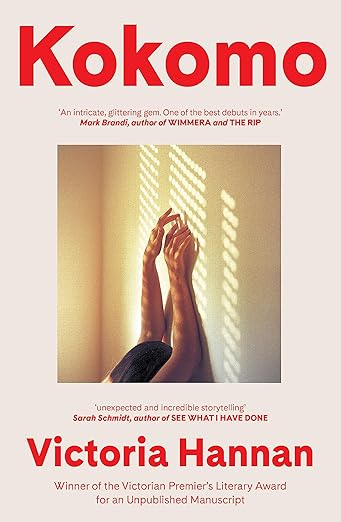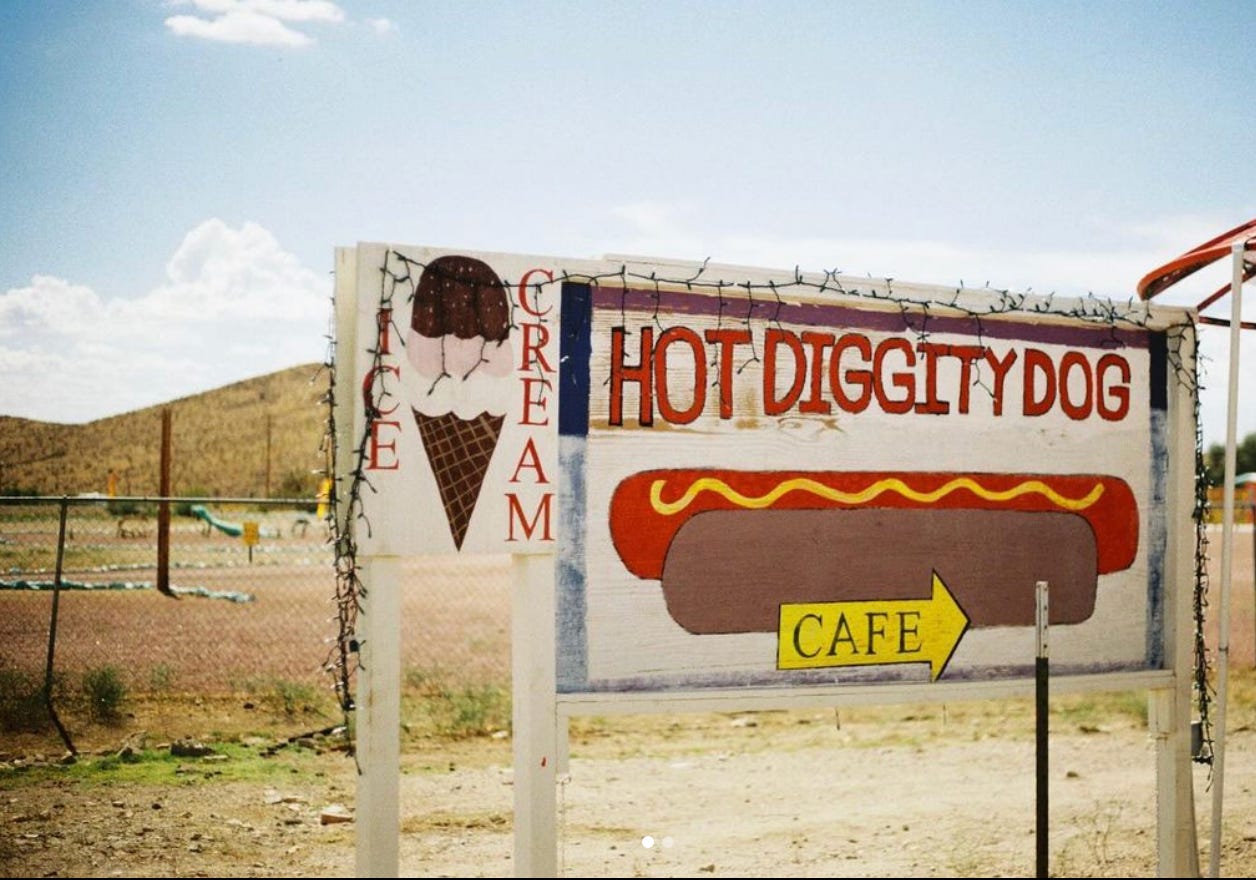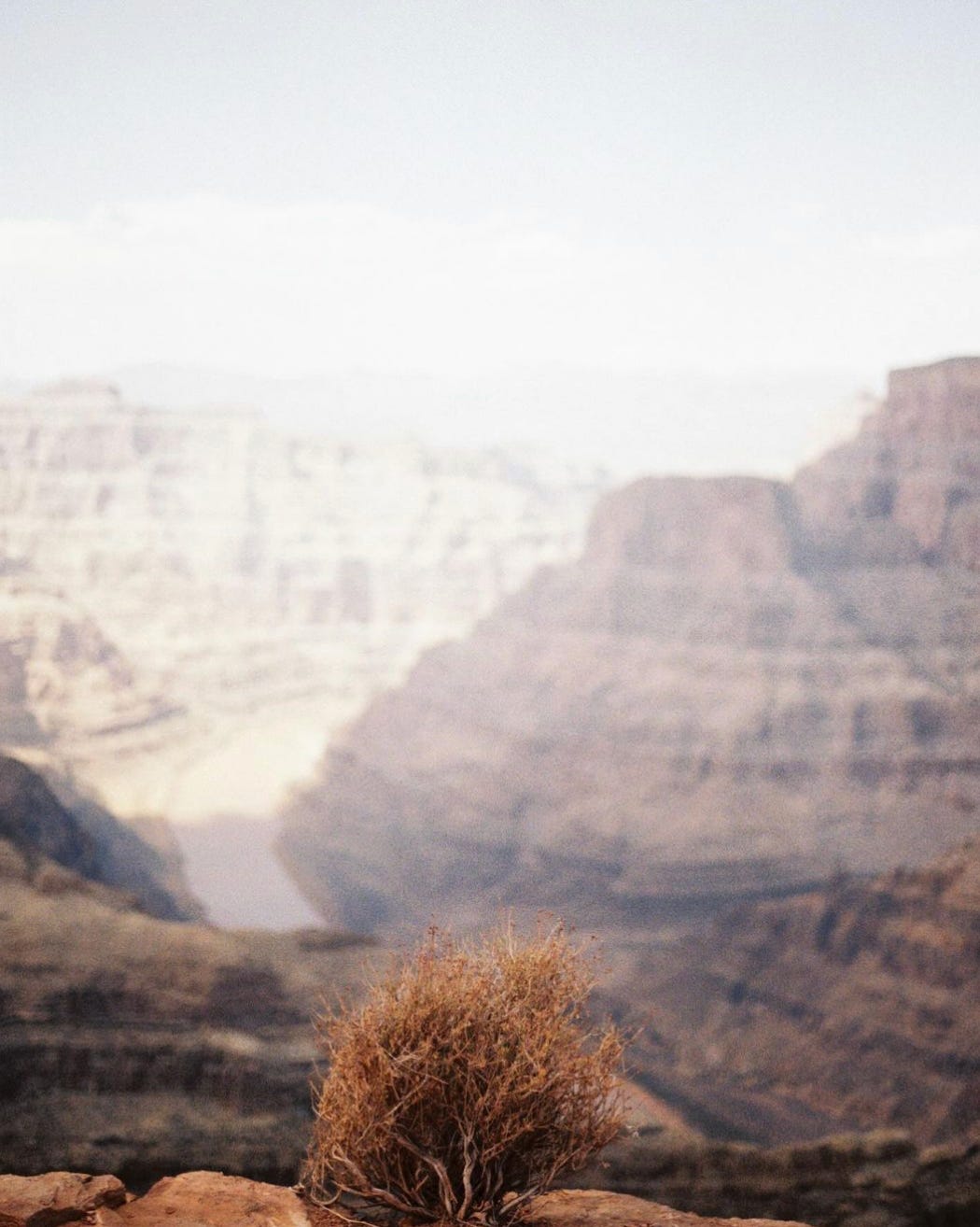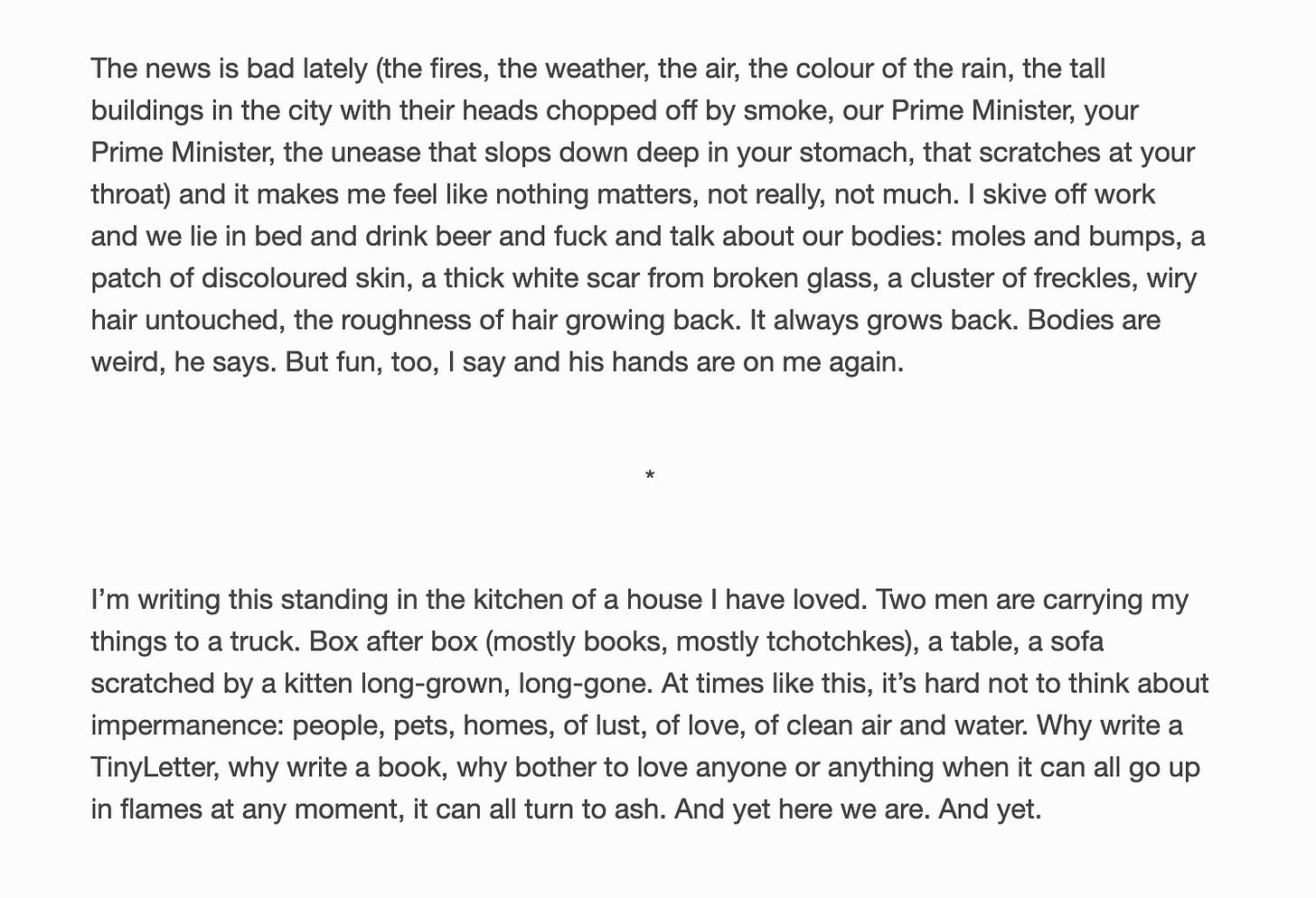Novelist Interview with Everyone's Favorite Australian Uncle Victoria Hannan
Hey, How Did You Get That Made? Pt. 3
Last year, I had grand ideas to do my interview series Hey, How’d You Get That Made? *monthly* because I am always fascinated in the nuts and bolts of the creative process from an IDEA to a TANGIBLE THING presented in front of an audience, but this year kinda walloped me and this is only the third installment. Sorry!!!!!!! There will be MORE of these to enjoy soon, but also, if they wind up being seasonal, that’s okay, too. Speaking of mistakes being okay when I do them, I went to the optometrist the other day because I keep getting headaches and I’m lightly squinting at subtitles and he said my eyes and eyesight are pretty perfect (2 years post-Lasik) and maybe the issue is that, well, would I call myself a perfectionist?
Not really, I laughed.
Well, do you easily find things wrong with other people and things, then?
Oh. Well…yes, absolutely. I’m Jewish! It’s in my bones. Though there is a passage in the Torah that reads “when a person seeks to find fault in his fellow man, it is proof that the fault is actually within him,” so hey, maybe I DO need glasses……..
Here’s someone I don’t find fault in, though: Australian novelist Victoria Hannan. Ever since we met because of our *~blogs~* when we were both living in London in 2008, I have been an enormous fan of her writing. There is a placid depth to her writing, a compelling assuredness that wraps its arms around you and shows you the way, and a seriousness that is still extremely funny. She had a TinyLetter where she just wrote about different swims she took, all over the world, and it was my favorite thing and everytime I see her (every 2 years?) I beg her to start it up again, but she just shakes her head, smirking at me. (So you’re sayin’ there’s a chance….!)
WRITING PROCESS: how do you force yourself to sit down and write? In that: how do you avoid inevitable distractions, and how do you write on days that you work your 9-5 job?
I have to be emotionally ready for it and very intentional. When I start on a project, it's with a spreadsheet of how many words I plan to write each day to get a first draft written as quickly as possible. Having a 9-5 job where you can write at work helps. Having a 9-5 job that is so boring you're compelled to write just to make it through the day is even better. On the days when I'm busy with work work, I still make sure to take the 30 minutes of my lunch break to write. Write 500 words a day and in four months, you'll have a novel!
The thing about writing is that no one is forcing me to do it. No one is out there demanding a new Victoria Hannan novel. If I never wrote again, it would actually be okay. Literally no one would care. So if I'm going to do it, it has to be because I want or need to.
How did the ideas for your books come to you - were they characters or plotlines first, or just a mood, or...?
It's a bit of everything which I realise is not helpful! This new book was originally going to be about the painter Agnes Martin so I spent a long time reading about her life and thinking about what could compel someone to disappear into the desert. But writing about a historical figure involves so much research and I don't really enjoy properly researching things I think because I'm lazy (except when it comes to holidays I want to take which I'll talk about in a minute). Writing about a real person also feels quite stressful because Martin is so beloved and who the HELL did I think I was being the person to write about her? So I thought it would be easier to make someone up and send them to the desert instead.
Tell me about this new book that you’re writing and why you chose to set it in the ugliest place on earth (Las Vegas lol) which is, truly unbeknownst to me but somehow knownst to you all the way in Australia, just adjacent to one of the most beautiful places on earth (according to you/your photos)???
I had been to Vegas once (for one night) before I had the idea for this novel and I hated it there. I also hate magic and fireworks and bright lights and casinos and kitsch and tack. So when I was thinking about where in the desert I would send my character, Vegas seemed like a good challenge. I wanted to write about a person out of their comfort zone learning to find beauty in places you might not think it possible for it to exist.
Photo from Vic’s IG.
I've always felt drawn to America's deserts. And when I started researching Vegas, I realised that around it were some incredible state parks like Valley of Fires and Red Rock Canyon. And also that you can get to the West Rim of the Grand Canyon in two hours! It was an interesting juxtaposition to explore: the fakeness and monumentality of Vegas versus the beauty and monumentality of the nature surrounding it.
Photo from Vic’s IG.
Did you or did you not tell me that you threw an entire novel away???? Talk to me about that.
Three whole manuscripts, to be exact! The first two were just for practice. I didn't believe in the idea but I just wanted to prove that I could sustain a voice and an idea for that many words. The third was actually okay but it didn't feel very me. It wasn't the novel with which I wanted to go out into the world. I think it having written these three novels that I didn't like helped me realise that Kokomo was worth pursuing.
How do you know when something you are writing is BAD - what does the feeling stir?
It's a feeling of dread deep down in your stomach, a dull ache at the base of your skull. I'll talk about this in my next answer but I generally don't read what I've written until I've finished a draft. Which is also why I've thrown out a couple of manuscripts - it wasn't until I got to the end of it that I realised it was a real piece of shit.
Are you a fast writer and a long reviser or do you take a long time churning something out to begin with? What's the writing vs. rewriting process and timeline look like for you?
Once I get going, I write really fast. I wrote my most recent draft (about 59,500 words) in two months. And that's while working full-time. Previously, I've written a whole draft at a four week residency. I work best when I have words on the page to edit then I'll spend up to a year revising and re-writing, pulling apart and putting back together. It's likely that no one will see a manuscript until I'm onto my third re-write. This is not necessarily the best or right way to work though! I know writers who labour over every sentence in the first draft.
Whatever gets the words on the page for you is the right way to write.
Talk to me about doing press for your book, which to me sounds like the most terrifying aspect of being a published author. Interviewers want to cull themes and motifs and symbology, but the writers I know don't necessarily write with all that at top of mind. Or maybe you do?
Press for your book is a rollercoaster ride. It's a true honour to have your work read deeply and understood by someone, who then asks really pertinent and interesting questions about it. But then there are interviews that are so bad that they make you want to round up every copy of your book and set them on fire. In the first interview I did about Marshmallow (a book about how five friends deal with a tragic death), the interviewer's own mother had recently died and so that's all she wanted to talk about. She even asked me if I wanted to "tell the listeners how [your] mum died". I absolutely did not want to talk about that but I was caught so off guard that I explained the trajectory of her cancer. It was awful.
Do you have themes that you want to get across in each novel, or do you tend to find ways to add literary devices in on the revision round?
In Australia there are a few grants each year that every writer in the country applies for. And for those grant applications, you have to distill your novel into themes to explain what it's about. So I will often have a good idea of what the novel is really about before and while I'm writing it.
Often, however, those literary devices will find their own way in there without you noticing. Other times they're deliberate and you have to find ways to subtly weave them in.
In one interview about Kokomo, I had an interviewer mention a motif that kept popping up in the novel and I had to pretend I'd done it on purpose. I didn't even realise it was there....
Did the grief you were encountering in your life mirror the grief you were writing in Marshmallow, or did one come first and the other follow? Can you tell us about the process of going on a tour of discussing the grief in your life and the book after publishing?
I had a draft of Marshmallow written before my mum died but it changed quite significantly afterwards. I kept a diary in the notes app on my phone in the last few weeks of her life which ended up being incredibly helpful when I went to start writing a new draft a few months later.
I found the process of writing about grief helped me understand my grief better and work through it. However, I hadn't taken into consideration that the book would come out almost two years after mum died and that I'd be forced to re-visit the state of mind I was in when I wrote it and to spend a few months talking about and hearing other people's stories of grief. I got some wonderful feedback from some people who told me it helped them feel less alone, but the whole process made me feel awful and if I could go back in time, I don't think I'd do it again. Or I'd write the book but I wouldn't publish it.
Tell me five of your favorite books, please.
Commonwealth - Ann Patchett
The Secret History - Donna Tartt
The Great Believers - Rebecca Makkai
Hot Milk - Deborah Levy (Ed. note: Also one of my favorites!!)
The Pisces - Melissa Broder
Recently read and loved:
Kairos - Jenny Erpenbeck
Headshot - Rita Bullwinkle
The Burgess Boys - Elizabeth Strout
Thank you for reading and obviously also falling deeply in love with my dear one, my Victoria, who lightly suggested my kids refer to her as Uncle as “Aunt” wasn’t the vibe she was going for, and which they heartily took on. You can order Kokomo here and her most recent novel, Marshmallow here.
You can also follow Victoria on Instagram here, where she hardly ever posts, which is of course very irritating to me because I would like to see the inside of her brain and days manifested on my feed hourly, if I had my druthers. She takes breathtakingly beautiful photographs.
This is from a TinyLetter she sent out in January of 2020, which feels weirdly prescient and foreboding, given what was just to come:








